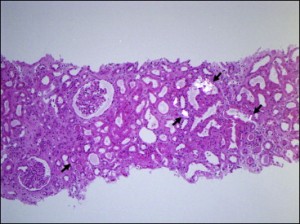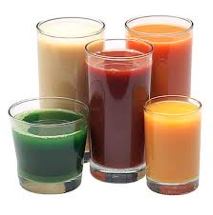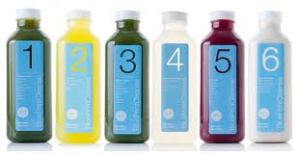I have had a recent interest in the practice of juicing. This is another thing where the science is still considered sketchy, so I will have to give you my informed opinion.
Juicing can be done with fruits and/or vegetables. The juice can be store-bought or a juicer can be purchased for home use. Since juicers are expensive, and I live in a tiny studio apartment, I don’t have a juicer, but I have tried some store- bought varieties and I’ve had some success with blending and straining.
Juicing really made national news after the film Fat, Sick, and Nearly Dead came out in 2010. This film was about an Australian man who came to the US and underwent a 60 day plant-based juice cleanse and lost over 100 lbs. He was under the care of a physician at the time, Dr. Joel Fuhrman (1).
So, my real question is… Why is juicing better than just eating the fruits and veggies? Do I really need a $300 machine to extract proper nutrients?
There is no reliable scientific evidence for the following, but proponents of juicing say that the machine removes all of the fiber from the fruits and veggies, and this gives the digestive system a break. All of the nutrients and enzymes are much more readily available for absorption, and many times, the juice tastes better to us than the whole fruits and veggies. It also makes it possible to consume huge amounts of healthful produce in one 16 oz. drink (2). We generally think of fiber as healthy for us, which it is, but fiber is indigestible plant material that simply passes through us. How much our digestive system is bothered by it is really an individual matter, but giving it a “break” sounds more like hype to me.
Then again, how many of us eat kale? I don’t understand how people decided we could eat that stuff. It tastes like grass. But when I blend it with apples and spinach and carrots, it makes a really good green apple-flavored juice. If you’re going to stick with this, the juice has to taste good. But remember, fruit contains a lot of natural sugar and more calories/serving than veggies, so use it to mask the veggie taste. If you expect to lose weight with nothing but juice, it’s gonna have to contain vegetables AND fruits.
Unfortunately, you should make new juice every day. The material that juice is composed of is suitable for being inside a skin or a peel. When exposed to the air, it oxidizes (making it really unappetizing visually), and it can also be a breeding ground for bacteria (3). That article says a week, but I wouldn’t keep it more than 2 days.
Until recently, there were only un-scientific reports and opinions on the health benefits of juicing. However, this year, a case of oxalate nephropathy due to juicing was studied. Luckily, for the reporting scientist, the man in question was curious about juicing, and kept detailed records of his eating habits. He juiced for 6 weeks, and took in fruit and vegetable combinations that are considered healthy in the juicing community. The issue was that he took in too much of certain nutrients and not enough of others. His daily oxalate intake was 1260 mg (the average person consumes around around 100-150 mg/day (4)), and his daily calcium intake was very low (370 mg/day). Calcium binding with oxalate cases oxalate crystals and kidney stones. The oxalate crystal formation ended up causing a 70% decrease in his glomerular filtration rate. He has since only partially recovered from the kidney problems caused by his 6 weeks of juicing.

Figure. Kidney biopsy specimen showed extensive calcium oxalate crystal deposition (arrows) in the background of interstitial fibrosis, tubular atrophy, tubular dilatation, and arteriosclerosis (stain, hematoxylin and eosin) (5).
Now granted, this patient was 81 years old, and already had a few kidney problems, but before juicing, all of his baseline nutrient intakes were in the normal range. Juicing caused the extreme changes in his oxalate, calcium, vitamin C, and potassium intakes (5).
Don’t let this one study discourage you from trying juicing if you really want to. It is totally possible to control your nutrient intake and get into juicing. Here is a handy list of foods by oxalate content. http://www.ohf.org/docs/Oxalate2008.pdf
To give yourself peace of mind if you do consume some higher oxalate foods, keep your calcium intake high. Calcium has multiple functions in the kidneys, and one is to make sure that oxalate is absorbed and sent to other parts of the body (not formed into kidney stones and oxalate crystals). The last nutrient to keep an eye on is vitamin C. If a huge excess of vitamin C enters the kidneys, the excess is converted to oxalate and defeats the purpose of watching oxalate intake (6).
Before I swear you off juicing forever with all these things to watch, I want you to know that the patient was also juicing ALL of his meals. Whenever and IF-ever I decide to juice, it will be one meal a day for a long period of time, OR all meals for a short period of time; not 6 weeks. 3-10 days is the average juice cleanse. Here is one that I really like. http://blueprintcleanse.com/
I know it’s expensive, but the juice is soooo good, and they deliver it fresh daily so no pasteurization, and you don’t have to worry about oxidation. You drink six bottles of juice/day, and that last one is cashew milk which is Heaven in a bottle.
As a final note, I have nothing against juicing. I don’t think our primal ancestors did it, and I don’t think it’s necessary. But it might be very beneficial after a heavy slip-up in your diet, like a weekend of binge drinking, for example. A 3-day juice cleanse might be very beneficial for your body. I also think (opinion, remember, not scientific fact) that replacing one meal/day, preferably breakfast, could lend some health benefits. It should work fine for other meals, but it should be consumed on it’s own and on an empty stomach. The whole benefit of juicing is the highly available nutrients. If you consume juice with other foods, then you might as well just eat the fruit or veggie.
There are a ton of websites out there with juicing tips and recipes. I would be here all day if I discussed them myself. Just remember that anything that claims to be a miracle worker is almost certainly not, and can actually be dangerous if you don’t educate yourself about it first!
1. “Nutrition Research Foundation: Scientific and Research Boards – Joel Fuhrman, M.D., Director of Research”. Nutritional Research Foundation.
2. http://www.mayoclinic.com/health/juicing/AN02107
3. http://www.webmd.com/diet/features/juicing-health-risks-and-benefits?page=2
4. Eric N. Taylor* and Gary C. Curhan. Oxalate Intake and the Risk for Nephrolithiasis. Journal of the American Society of Nephrology, 2007.
5. J.E. Getting, J.R. Gregoire, A. Phul, M.J. Kasten. Oxalate nephropathy due to ‘juicing’: case report and review. Am J Med, 126 (2013), pp. 768–772
6. Yeong-Hau H. Lien, MD, PhD. Juicing is Not All Juicy. The American Journal of Medicine: Volume 126, Issue 9, September 2013, Pages 755–756

